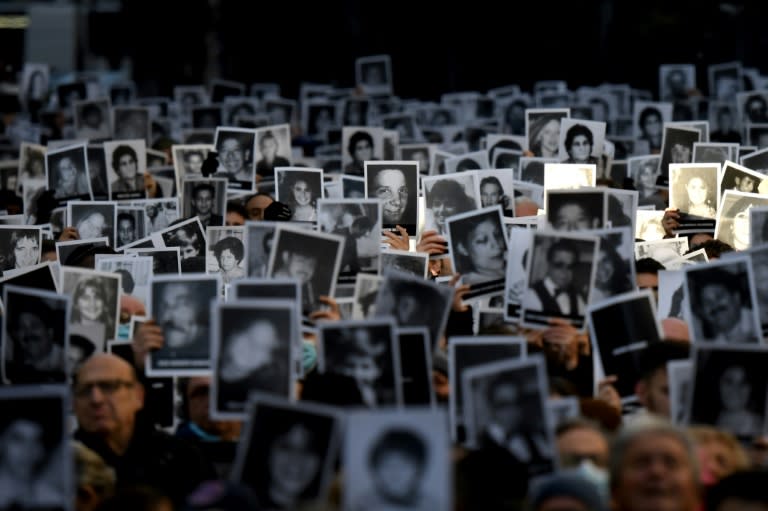Argentina responsible in deadly 1994 attack on Jewish center: court

A top human rights court on Friday held the Argentine state responsible for not preventing, nor properly investigating, an attack on a Jewish center 30 years ago that left 85 people dead.
It also blamed the state for efforts to "cover up and obstruct the investigation," robbing victims and their loved ones of justice.
A truck laden with explosives drove into the Argentine Israelite Mutual Association (AMIA) a Jewish community center, and detonated on July 18, 1994, in the deadliest attack in the South American country's history. Besides the 85 dead, more than 300 people were injured.
Argentina has the largest Jewish community in Latin America, with some 300,000 members.
The 1994 assault has never been claimed or solved, but Argentina and Israel have long suspected Lebanon's Shiite Hezbollah group carried it out at Iran's request.
In April, an Argentine court blamed Hezbollah for the attack it called a "crime against humanity," and labeled Iran a "terrorist state."
It found that the attack and another on the Israeli embassy in 1992 that killed 29 people, were likely triggered by the government under then-president Carlos Menem cancelling three contracts concluded with Iran for the supply of nuclear equipment and technology.
After that ruling, Buenos Aires asked Interpol to arrest Iran's interior minister Ahmad Vahidi, whom it accuses of masterminding the attack.
Tehran denies any involvement.
On Thursday, the Inter-American Court of Human Rights in San Jose, Costa Rica, found Argentina "responsible for not having adopted reasonable measures" to prevent the bombing.
"The state was aware of a situation of real and immediate risk for sites connected to the Jewish community and did not adopt reasonable measures" to ameliorate the danger, the judges concluded.
Through this failure, the state violated victims' right to life and personal integrity, as well as principles of equality and non-discrimination, said the court.
After the attack, it added, the state then failed in its duty to investigate "with due diligence and within a reasonable time," so violating victims' right to judicial protection.
- 'Total impunity' -
The initial investigation was botched and tainted by allegations of corruption.
A prosecutor who accused then-president Cristina Kirchner of orchestrating a cover-up in exchange for oil and trade benefits was found dead in 2015 under mysterious circumstances as he was about to present his findings.
The Argentina justice system dropped its obstruction probe of Kirchner, but reopened it last year.
Menem was tried for a cover-up in the case, but acquitted. He died in 2021.
The Inter-American court on Thursday ordered Argentina to remove all obstacles "which maintain total impunity in this case."
The state should do everything necessary "to identify, judge and punish those responsible for the events of this case, their cover-up and, thus, be able to establish the truth of what happened, all within a reasonable time," it said.
apg-tev/mis/mlr/dw

 Yahoo News
Yahoo News 
